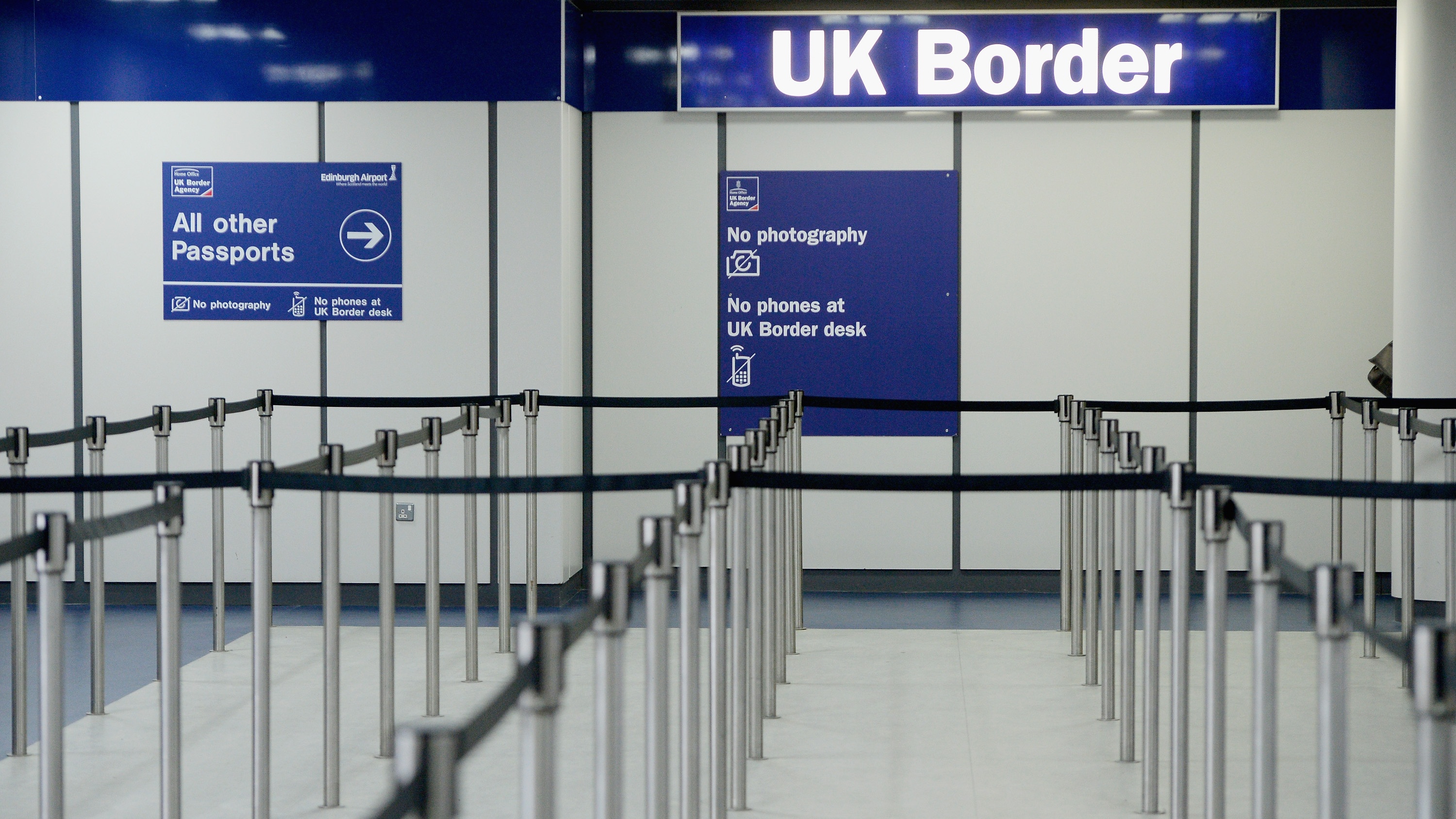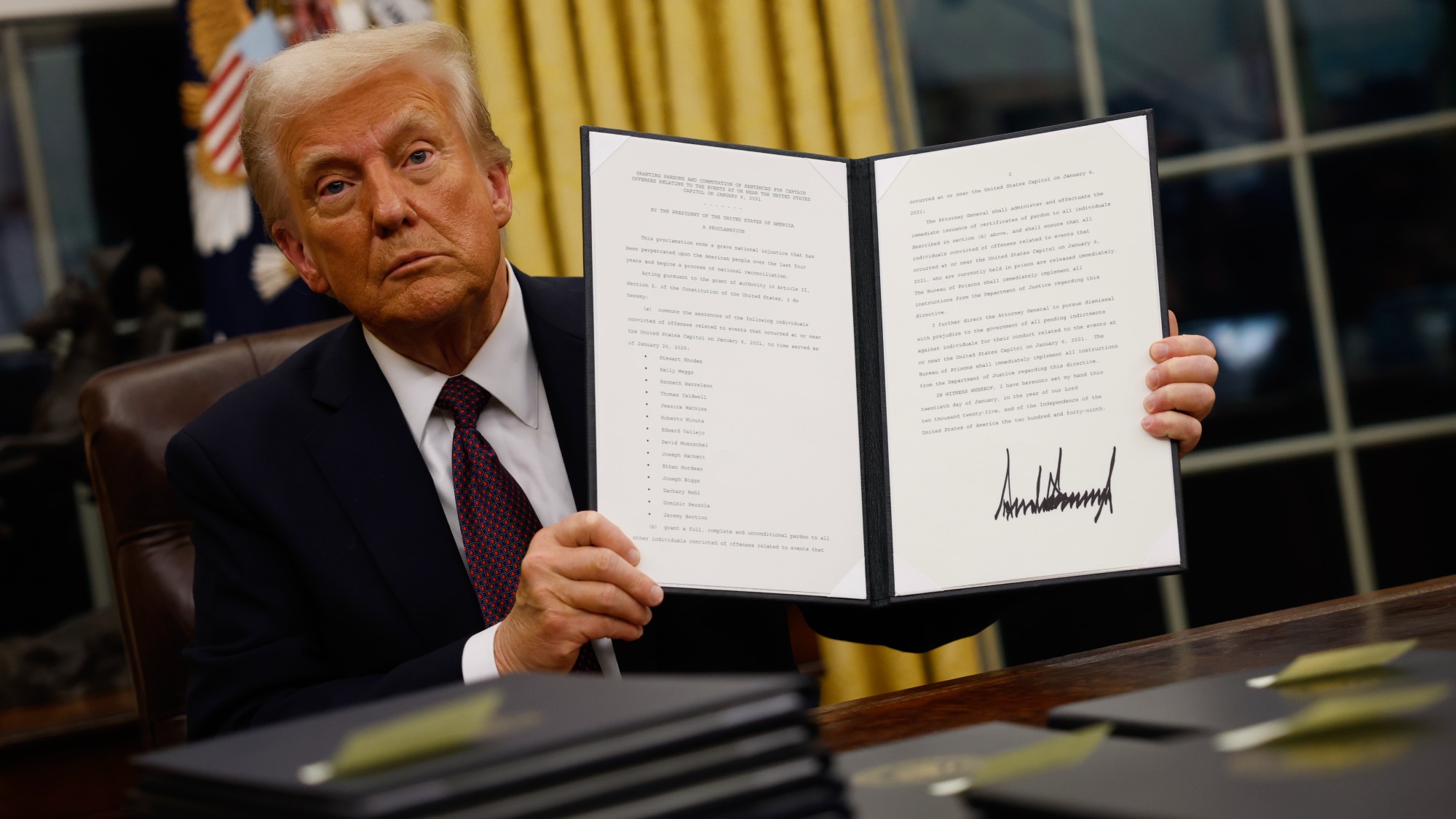The problem with the UK’s immigration rules
Legal watchdog says simplifying 1,100-page rulebook would save £70m

A free daily email with the biggest news stories of the day – and the best features from TheWeek.com
You are now subscribed
Your newsletter sign-up was successful
The UK’s immigration rules are “overly complex and unworkable”, according to the Law Commission.
The independent law reform agency, which advises government ministers, says the regulations have been “criticised for being poorly drafted” and have quadrupled in length since 2010.
The laws ran to 40 pages when first introduced in 1973 under the Immigration Act, but now extend across 1,100, reports The Guardian - although the newspaper notes that the commission’s newly published report “is not itself a model of brevity”, at 220 pages.
The Week
Escape your echo chamber. Get the facts behind the news, plus analysis from multiple perspectives.

Sign up for The Week's Free Newsletters
From our morning news briefing to a weekly Good News Newsletter, get the best of The Week delivered directly to your inbox.
From our morning news briefing to a weekly Good News Newsletter, get the best of The Week delivered directly to your inbox.
What has the Law Commission said?
According to the agency’s website, a Home Office-sponsored review found that immigration rules had been made more prescriptive in order to produce more “transparent outcomes”, but had become “harder to follow” for both applicants and case workers as a result.
Public law commissioner Nicholas Paines QC said: “This has resulted in mistakes that waste time and cost taxpayer money.”
Calling for the regulations to be simplified, he continued: “By improving the drafting, restructuring the layout and removing inconsistencies, our recommendations will make a real difference by saving money and increasing public confidence in the rules.”
A free daily email with the biggest news stories of the day – and the best features from TheWeek.com
Evidence presented to the legal watchdog highlighted the increased need for clarity, with increasing numbers of applicants struggling to get to grips with the immigration process without expert help.
The structure of immigration regulations is “confusing and numbering inconsistent”, says the commission’s report. “Provisions overlap with identical or near-identical wording. The drafting style, often including multiple cross-references, can be impenetrable. The frequency of change fuels complexity.”
The agency estimates that simplifying the rules could save the government £70m over the next decade. The report continues: “It is a basic principle of the rule of law that applicants should understand the requirements they need to fulfil … For the Home Office, benefits include better and speedier decision-making.
“This leads to a potential reduction in administrative reviews, appeals and judicial reviews, and to a system which is easier and cheaper to maintain.”
And the reaction?
The commission’s recommendations have been backed by campaign organisation Right to Remain, which helps people establish their right to remain in the UK and challenges alleged injustices in the immigration and asylum system.
“The immigration rules are ‘overly complex and unworkable’…not news to anyone who’s interacted with them,” the group tweeted.
That view was echoed by Labour’s shadow home secretary Diane Abbott, who said on Twitter that the Law Commission was “correct to say immigration rules are unworkable”.
“[It is] long past time for fair rules and treatment, simpler rules and procedures and an end to the government’s “hostile environment’,” she added.
Scottish National Party MP Stuart McDonald tweeted: “Whole system of making rules needs scrapped & redesigned. UK ministers are making lives difficult, even destroying lives at stroke of a pen, with zero opportunity for serious parliamentary scrutiny.”
-
 The environmental cost of GLP-1s
The environmental cost of GLP-1sThe explainer Producing the drugs is a dirty process
-
 Greenland’s capital becomes ground zero for the country’s diplomatic straits
Greenland’s capital becomes ground zero for the country’s diplomatic straitsIN THE SPOTLIGHT A flurry of new consular activity in Nuuk shows how important Greenland has become to Europeans’ anxiety about American imperialism
-
 ‘This is something that happens all too often’
‘This is something that happens all too often’Instant Opinion Opinion, comment and editorials of the day
-
 Should Britain withdraw from the European Convention on Human Rights?
Should Britain withdraw from the European Convention on Human Rights?Talking Point With calls now coming from Labour grandees as well as Nigel Farage and the Tories, departure from the ECHR 'is starting to feel inevitable'
-
 Birthright citizenship under threat in US
Birthright citizenship under threat in USThe Explainer Donald Trump wants to scrap the policy he calls a 'magnet for illegal immigration'
-
 Supreme Court says US border agents can remove Texas razor wire
Supreme Court says US border agents can remove Texas razor wireSpeed Read The 5-4 ruling is a win for the Biden administration in its broader fight over border authority with Texas Gov. Greg Abbott
-
 Florida construction and agricultural workforces diminished after new immigration law takes effect
Florida construction and agricultural workforces diminished after new immigration law takes effectSpeed Read
-
 US Republicans push to keep strict Covid border laws
US Republicans push to keep strict Covid border lawsSpeed Read A judge ruled that the controversial Title 42 restrictions on asylum seekers should be scrapped
-
 Rwanda deportations: the legal bids to stop first flight explained
Rwanda deportations: the legal bids to stop first flight explainedfeature Blanket legal challenges fail in run-up to take-off but individual asylum-seeker cases have more success
-
 Supreme Court allows revival of Trump administration's 'Remain in Mexico' policy
Supreme Court allows revival of Trump administration's 'Remain in Mexico' policySpeed Read
-
 Lawsuit claims ten-year-old drugged and assaulted in US custody
Lawsuit claims ten-year-old drugged and assaulted in US custodySpeed Read Guatemalan boy spent 11 months in detention after being seized by US immigration officials